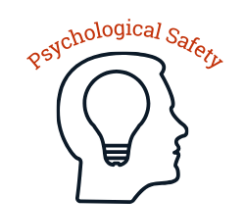How does ‘Psychological Safety’ apply to me? Sign up to our upcoming event on 24th September!
As you will have seen, the IBC and LPMA held a joint event in June on the topic of Psychological Safety. This was our flagship first event that formed part of a series of events focussed on our collective memberships’ responses to the working lives survey undertaken last year. Huge thanks to each and every one of you who completed the survey – the outputs have given us real food for thought as to how we can better support you. Due to demand we are now running a lunchtime webinar on the 24th September.
The event is aimed at all levels of seniority – we all have such an important part to play in our clerks rooms and workplaces, from the most junior to the most senior. Learning more about this particular topic may well help you to understand why having open lines of communication is so important, and how you can be a part of improving on that, both now and in the future.
So what IS Psychological Safety? And does it ‘apply’ to you? Google says (because let’s face it, that is the 21st century encyclopaedia):
‘Psychological safety means feeling safe to take interpersonal risks, to speak up, to disagree openly, to surface concerns without fear of negative repercussions or pressure to sugar coat bad news’
It sounds idyllic doesn’t it? To be able to (reasonably) speak your mind, have frank conversations that actually result in outputs rather than talking around tricky subjects, and not being worried about how they’re perceived? That’s not to say that it makes it ok to be insensitive, unkind or behave poorly, but simply to be able to feed in constructively to conversations without the anxiety factor that puts you off the idea entirely.
I’m sure we can all relate to this topic, regardless of seniority or role. Whether it’s a conversation at a junior level of trying to improve processes that have ‘always been done that way’ even though they may now be redundant or less efficient, to in fact exactly the same conversation at Man Com level (I’m here to tell you all, the topics may get more complex, but the themes don’t change dramatically as you progress!). Let’s also not forget conversations with clients; at every level we sometimes have to talk about issues, or listen to our clients’ issues, and they’re not always positive (unless you’re very lucky!). So how can we improve our own approach to those situations; how can we make it better for our colleagues, our teams, our members and even our clients? What can we do be doing differently to make our working days more open and transparent, and ultimately more efficient and effective as a result? How can we work towards a workplace culture that allows people to own and learn from their mistakes? If we get it right, it doesn’t undermine the fact that we must in fact learn from them, because there are expectations and standards that must be met, but that actually we can address them and move past them in a way that doesn’t leave everyone involved feeling miserable.
There is one particular article I’d draw your attention to, which gives a really good narrative on the topic:
What Is Psychological Safety? (hbr.org)
Geoff Carr, Chair of the IBC, says:
“Psychological Safety is not just a concept; it’s a critical component of both personal and career development for everyone who works in chambers. All the membership should attend this talk on the 24th September.
Whether you’re just starting out or leading a team, understanding Psychological Safety will help you engage in open, honest conversations, improve processes, and build a work culture where everyone feels safe to contribute and learn.
This talk is designed to enhance your approach to work, team interactions, and client relations. Sign up now to secure your place and be part of this really important discussion.”
If you’d like to join us for our upcoming talk on this topic, to learn more about yourselves, your team (whether you’re managing it or just starting out) and even your member interactions and development, please do sign up to our event here. Please note, you must be a member of the IBC to attend this event and details as to how to join can be found here.
Sarah Earl
Chair of Education for the IBC


